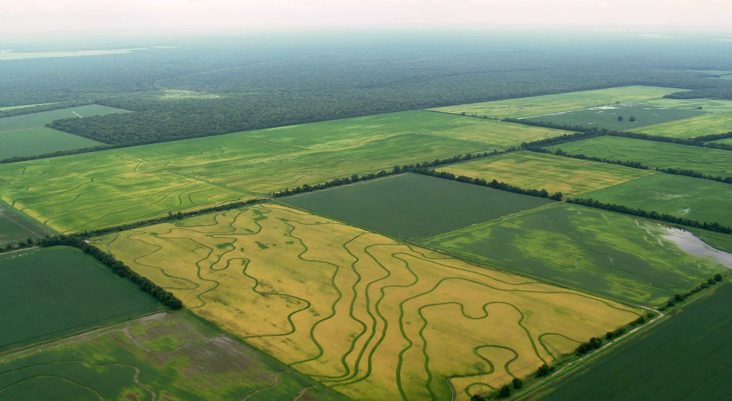Farmers catching a break as summer heats up in the Delta
by June 28, 2023 11:49 am 853 views

Drought, disease, inconvenient rains, and weed infestations have plagued farmers in Northeast Arkansas during the last half decade. In 2023, those farmers might be catching a little break, Craighead County Extension agent Brannon Thiesse told Talk Business & Politics.
During the spring it rained just enough and then stopped so that planting for all row crops including corn, soybeans, cotton, and rice was finished early, he said. And then, we’ve had timely rains as summer started.
The corn crop is already putting on its “silk” or ears and many soybean fields are already knee-high, he said. The corn crop is at least a month ahead of schedule.
“I was blown away by how fast we got planted this year. Our outlook should be pretty good,” he said. “Spring was good to our farmers. We got timely rains. Cotton is up and growing. The rice crops look good. Herbicides seem to be working. I’m not seeing a lot of grass in our rice patties.”
Last year, farmers had to battle drought. From late May to the end of July it only rained a handful of days in the Arkansas Delta. Rainfall has been significantly higher this year as an El Nino weather event is dominating weather in the Natural State, according to the National Weather Service.
An El Nino weather event occurs when waters in the Pacific Ocean are warmer than normal. This typically causes the atmosphere to be warmer and wetter. Pop up thunderstorms are more common, and it makes accurate forecasts more difficult, the NWS reported. For example, on June 16 there was only a 30% chance of rain throughout Northeast Arkansas, but the entire region got doused by rains of an inch or more.
“Whether it’s going to rain or not – that’s the biggest issue right now,” he said.
Thiesse said periodic rains throughout the summer will dictate profit margins for farmers. Weather is always a concern for farmers in the region, but there are other factors impacting farmers.
One short-term issue is labor. Finding enough workers to work on farms is becoming a larger problem, he said. Many farmers employ workers from other countries.
“You can’t find anybody around here that wants to work on the farm,” he said.
Another issue is herbicide resistance. When he first started his job 39 years ago in Helena-West Helena, farmers had few tools to use when it came to weed control. When Roundup hit the market about 25 years ago, it was a revelation, he said.
But it’s now a major problem. Weeds started to morph and become more resistant to chemical formulations. Developing effective herbicides is taking longer and longer and it will be a problem long-term, he predicts.
“It wasn’t a problem when I started. Farmers had few chemicals available. Weed genetics have changed a lot. It’s a problem of our own making. Now we are paying the price,” he said.
